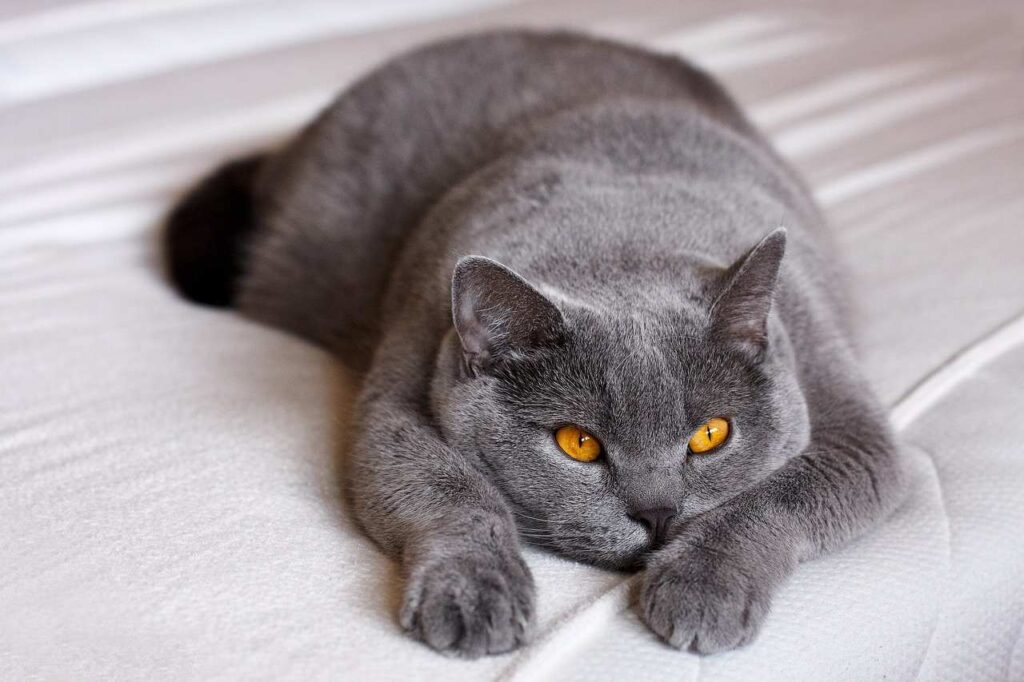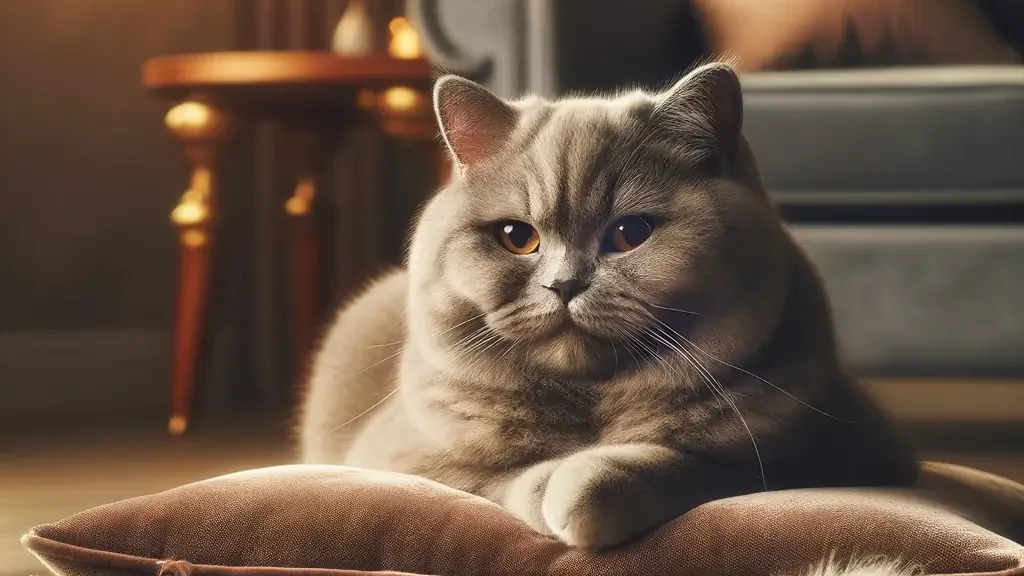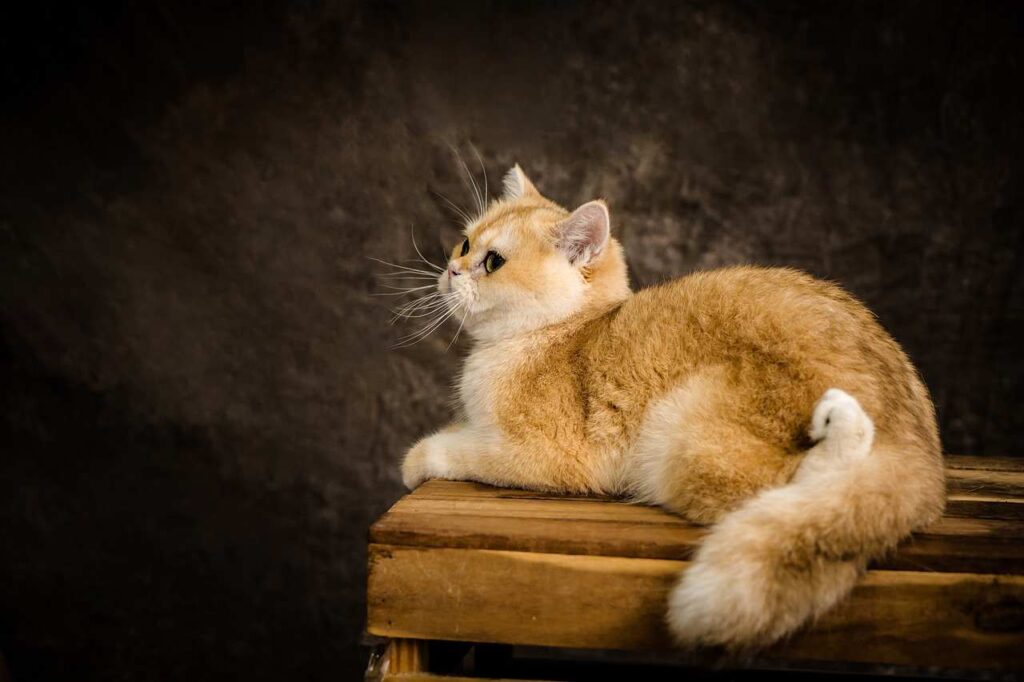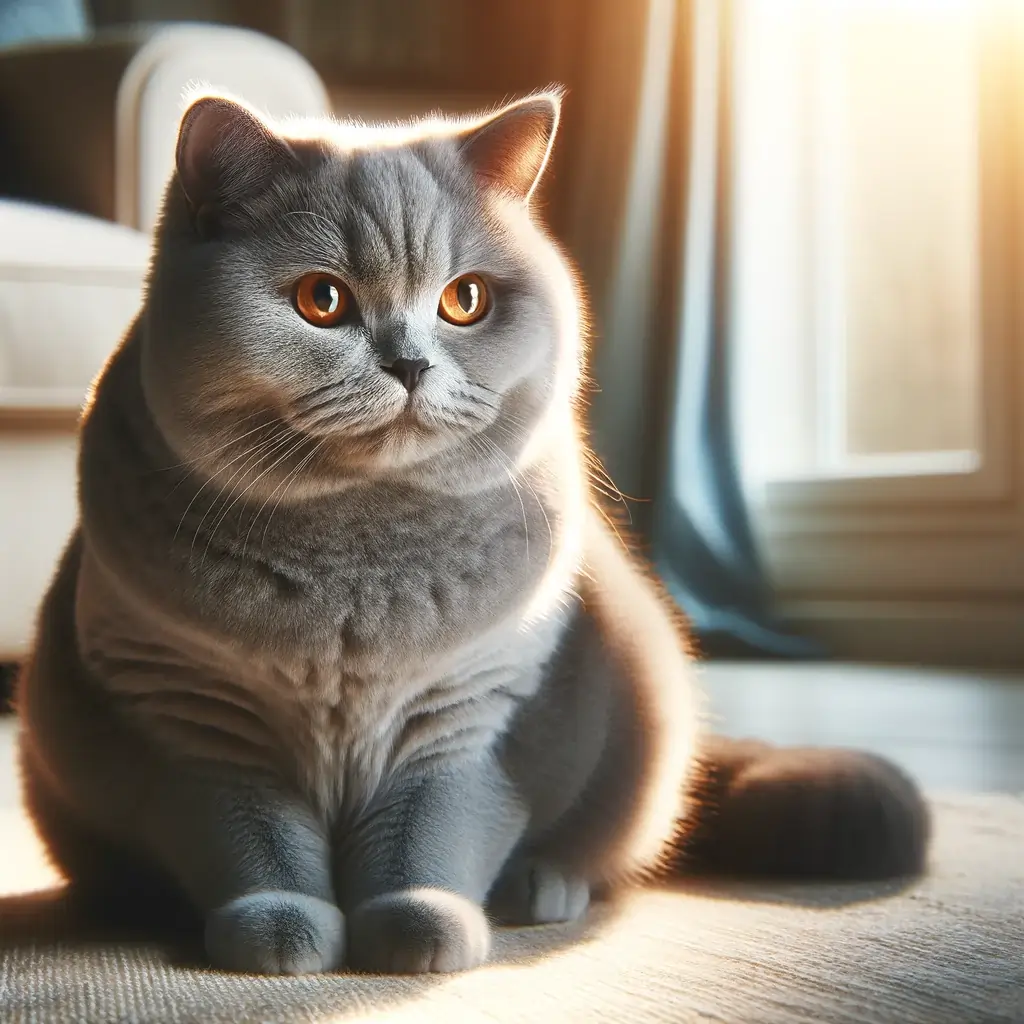As a proud owner of a British Shorthair or someone considering bringing one into your life, you may wonder how well these cats cope with being left alone. In today’s fast-paced world, many pet owners have busy schedules that require them to leave their furry friends at home for extended periods.
In this comprehensive guide, we’ll explore the British Shorthair’s ability to handle solitude and provide you with valuable tips to make their alone time more comfortable and enjoyable.
Can You Leave a British Shorthair Alone?
The short answer is yes, you can leave your British Shorthair alone for a certain period. These cats are generally self-sufficient and can entertain themselves when left alone. However, the length of time you can leave them depends on various factors, such as their age, health, and individual personality.
Adult British Shorthairs can typically handle being alone for 24-48 hours, provided they have access to fresh water, food, and a clean litter box. It’s essential to ensure that their basic needs are met and that they have a safe and comfortable environment to relax.
On the other hand, kittens and senior cats may require more frequent check-ins and care. Kittens under six months old should not be left alone for more than a few hours, as they need regular feeding, socialization, and supervision. Senior cats may have health issues that require more frequent monitoring and medication.

Why Can British Shorthair Cat Be Left Alone?
Several characteristics of the British Shorthair make them more adaptable to spending time alone compared to other cat breeds:
Independent Personality
British Shorthairs are known for their independent nature. While they enjoy the company of their human companions, they don’t constantly crave attention. They are content to spend time on their own, napping, exploring, or playing with their toys.
This independence stems from their history as skilled hunters on the streets and farms of Britain. Their self-sufficient nature means they are less likely to experience separation anxiety when left alone for short periods.
Calm and Undemanding
Another reason British Shorthairs can handle some solitude is their calm and undemanding personality. They are not overly vocal cats and tend to be quite quiet and laid-back. They don’t require constant stimulation and are happy to entertain themselves with their favorite toys or by watching the world go by from a window perch.
This relaxed temperament means they are less likely to become stressed or anxious when their human companions are away. They can adapt well to changes in routine and are not as sensitive to being left alone as some other more high-strung breeds.
Intelligent and Adaptable
British Shorthairs are very intelligent and adaptable. They are quick learners and can easily adjust to new situations and environments. This adaptability serves them well when it comes to spending time alone.
They are skilled at finding ways to entertain themselves and can learn to enjoy their own company. They may nap more when you’re away or find creative ways to play with their toys. Their intelligence also means they can be trained to understand and accept your absence as part of their routine

Ensuring Happiness and Safety When Leaving British Shorthair Cats Alone
To make being home alone easier for your British Shorthair cat, or any cat, you can employ several effective strategies to ensure they remain happy and stress-free in your absence. These methods focus on providing mental stimulation, physical activity, and a sense of security for your cat.
Create a Comfortable Environment
Firstly, ensure that your cat has a comfortable and stimulating environment. This includes access to cat trees and perches, which allow them to observe their surroundings from a safe height.
Cats enjoy high places, and providing vertical spaces can help them feel more secure and in control. Additionally, make sure there are cozy spots for hiding and sleeping, as cats often seek solitude and comfort in enclosed spaces.
Engage Their Senses
Interactive toys play a crucial role in keeping a cat entertained while alone. Puzzle feeders, which require your cat to solve a puzzle to access food, can keep them mentally stimulated and prevent boredom.
Toys that mimic the movement of prey, such as battery-operated mice or feather wands, can also keep your cat physically active and engaged. Rotating these toys to maintain your cat’s interest over time is beneficial.
Maintain Routine and Familiarity
Cats are creatures of habit and thrive on routine. Stick to a consistent schedule for feeding, playtime, grooming, and other activities This predictability can make your cat feel more secure when you’re not home.
Additionally, leaving items with your scent, such as worn clothing, can provide comfort and reduce anxiety for your cat.
Use Technology and Media
Consider using technology to keep your cat company. Cat-specific videos or TV channels that show images of birds and small animals can provide visual stimulation.
Additionally, leaving a radio or TV on at low volume can mimic the presence of people, potentially soothing your cat.
Ensure Safety and Accessibility
Ensure your home is cat-proofed and safe for your British Shorthair to explore freely. Remove any hazardous objects or toxic plants, and ensure that all windows and doors are secure to prevent escapes or accidents. If your cat enjoys looking outside, provide access to a securely screened window where they can observe outdoor activities safely.
Consider a Companion
If your cat exhibits loneliness or anxiety, another cat might provide companionship and reduce stress. However, this should be considered carefully, as not all cats appreciate the presence of another feline. If you decide to introduce another cat, ensure a slow and proper introduction to minimize stress for both animals.
Regular Check-ins
If you’re away for extended periods, arranging for someone to check on your cat can be beneficial. A trusted friend, family member, or professional pet sitter can provide food, clean the litter box, and offer some interactive playtime

Conclusion
In conclusion, British Shorthair cats can be left alone for a reasonable amount of time, thanks to their independent and adaptable nature. However, it’s crucial to consider your individual cat’s needs and ensure they have a comfortable and stimulating environment in your absence.
By providing plenty of toys, a cozy space, and maintaining a consistent routine, you can help your British Shorthair cope with being alone. If you’ll be away for an extended period, arrange for someone to check in on your cat daily to ensure their well-being.
Frequently Asked Questions
Q: Can British Shorthairs be left alone for 8 hours?
A: Yes, most adult British Shorthairs can handle being alone for a typical 8-hour workday, provided they have access to food, water, and a clean litter box.
Q: Do British Shorthairs get lonely?
A: Like all cats, British Shorthairs can experience loneliness if left alone for extended periods without proper stimulation and interaction. However, they are generally more independent than some other breeds.
Q: Can I leave my British Shorthair alone for the weekend?
A: It’s not recommended to leave your British Shorthair alone for an entire weekend. If you plan to be away for more than 24 hours, arrange for someone to check on your cat daily to provide food, water, and interaction
